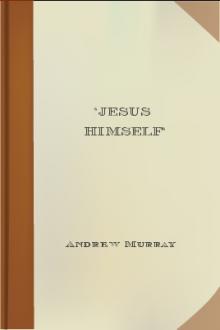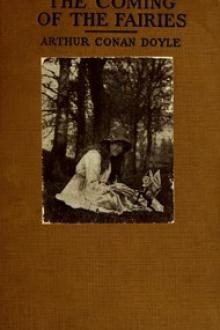Genre Philosophy. Page - 20

ury of both.
When the French Revolution broke out, it certainly afforded to Mr. Burke an opportunity of doing some good, had he been disposed to it; instead of which, no sooner did he see the old prejudices wearing away, than he immediately began sowing the seeds of a new inveteracy, as if he were afraid that England and France would cease to be enemies. That there are men in all countries who get their living by war, and by keeping up the quarrels of Nations, is as shocking as it is true; but when those who are concerned in the government of a country, make it their study to sow discord and cultivate prejudices between Nations, it becomes the more unpardonable.
With respect to a paragraph in this work alluding to Mr. Burke's having a pension, the report has been some time in circulation, at least two months; and as a person is often the last to hear what concerns him the most to know, I have mentioned it, that Mr. Burke may have an opportunity of contradicting the rumour, if he thinks proper.

to one of them publicly was already sufficient to set him off as one in imminent need of psychiatrical attention. Belief in them had become a mark of inferiority, like the allied belief in madstones, magic and apparitions.
But though the theology of Christianity had thus sunk to the lowly estate of a mere delusion of the rabble, propagated on that level by the ancient caste of sacerdotal parasites, the ethics of Christianity continued to enjoy the utmost acceptance, and perhaps even more acceptance than ever before. It seemed to be generally felt, in fact, that they simply must be saved from the wreck--that the world would vanish into chaos if they went the way of the revelations supporting them. In this fear a great many judicious men joined, and so there arose what was, in essence, an absolutely new Christian cult--a cult, to wit, purged of all the supernaturalism superimposed upon the older cult by generations of theologians, and harking back to what was conceived to be the pure ethical doc

, day by day, so
Christ is able
in heaven now to do what He could not do when He was on earth--to keep in the closest fellowship with every believer throughout the whole world. Glory be to God! You know that text in Ephesians: "He that descended is the same also that ascended, that He might fill all things." Why was my Lord Jesus taken up to heaven away from the life of earth? Because the life of earth is a life confined to localities, but the life in heaven is a life in which there is no limit and no bound and no locality, and Christ was taken up to heaven, that, in the power of God, of the omnipresent God, He might be able to fill every individual here and be with every individual believer.
That is what my heart wants to realize by faith; that is a possibility, that is a promise, that is my birthright, and I want to have it, and I want by the grace of God to say, "Jesus, I will not rest until Thou hast revealed Thyself fully to my soul."
There are often very blessed expe

their respect for the ladies, whom it was their duty to serve. And nearly every other ceremony which has lasted was based on common sense. "Etiquette," as Dr. Brown has said, "with all its littlenesses and niceties, is founded upon a central idea of right and wrong."
The word "courtesy" itself did not come into the language until late (etiquette came even later) and then it was used to describe the polite practices at court. It was wholly divorced from any idea of character, and the most fastidious gentlemen were sometimes the most complete scoundrels. Even the authors of books of etiquette were men of great superficial elegance whose moral standards were scandalously low. One of them, an Italian, was banished from court for having published an indecent poem and wrote his treatise on polite behavior while he was living in enforced retirement in his villa outside the city. It was translated for the edification of the young men of England and France and served as a standard for several generations. Anot

ly little bows and little arrows that looked like children's playthings, but upon these tiny arrows there was a small drop of poison which would kill an elephant or a man as quickly and as surely as a Winchester rifle. Their defense was by means of poison and traps. They would steal through the darkness of the forest and, waiting in ambush, let fly their deadly arrows before they could be discovered. They dug ditches and carefully covered them over with leaves. They fixed spikes in the ground and tipped them with the most deadly poison, and then covered them. Into these ditches and on these spikes man and beast would fall or step to their death.
A lady once writing to a young man in the navy who was almost a stranger, thought "Shall I close this as anybody would, or shall I say a word for my Master?" and, lifting up her heart for a moment, she wrote, telling him that his constant change of scene and place was an apt illustration of the word, "Here we have no continuing city," and asked if he c

blacken his name and secure his removal, instigated a suit against him for having mismanaged an inheritance left to his children by his first wife. The children themselves appeared in his defence, however, and expressed their complete satisfaction with his administration of their property; and the trumped up charge was wholly disproved. But his enemies still wanted to have him removed and, choosing a new method of attack, forwarded a petition to the king in which they claimed that "Master Hans Chrestensen Sthen because of weakness and old age was incompetent to discharge his duties as a pastor", and asked for his removal to the parishes of Tygelse and Klagstrup. Though the king is reported to have granted the petition, other things seem to have intervened to prevent its execution, and the ill-used pastor appears to have remained at Malmø until his death, the date of which is unknown.
Sthen's fame as a poet and hymnwriter rests mainly on two thin volumes of poetry. A Small Handbook, Containi

as to the Tao have the happiness of attaining to it; those with whom he agrees as to its manifestation have the happiness of attaining to it; and those with whom he agrees in their failure have also the happiness of attaining (to the Tao). (But) when there is not faith sufficient (on his part), a want of faith (in him) ensues (on the part of the others).
24. He who stands on his tiptoes does not stand firm; he who stretches his legs does not walk (easily). (So), he who displays himself does not shine; he who asserts his own views is not distinguished; he who vaunts himself does not find his merit acknowledged; he who is self- conceited has no superiority allowed to him. Such conditions, viewed from the standpoint of the Tao, are like remnants of food, or a tumour on the body, which all dislike. Hence those who pursue (the course) of the Tao do not adopt and allow them.
25. 1. There was something undefined and complete, coming into existence before Heaven and Earth. How still it was and formless,

s of memory, and the various other symptoms of the hypnotic state as we know it. It was thought that magnetism had a right to be considered as a therapeutic agent, and that it might be used by physicians, though others should not be allowed to practice it. In 1837 another commission made a decidedly unfavorable report.
Soon after this Burdin, a member of the Academy, offered a prize of 3,000 francs to any one who would read the number of a bank-note or the like with his eyes bandaged (under certain fixed conditions), but it was never awarded, though many claimed it, and there has been considerable evidence that persons in the hypnotic state have (sometimes) remarkable clairvoyant powers.
Soon after this, magnetism fell into very low repute throughout France and Germany, and scientific men became loath to have their names connected with the study of it in any way. The study had not yet been seriously taken up in England, and two physicians who gave some attention to it suffered decidedly in profe

ting that all philosophers, in so far as they have beendogmatists, have failed to understand women--that the terribleseriousness and clumsy importunity with which they have usuallypaid their addresses to Truth, have been unskilled and unseemlymethods for winning a woman? Certainly she has never allowedherself to be won; and at present every kind of dogma stands withsad and discouraged mien--IF, indeed, it stands at all! For thereare scoffers who maintain that it has fallen, that all dogma lieson the ground--nay more, that it is at its last gasp. But tospeak seriously, there are good grounds for hoping that alldogmatizing in philosophy, whatever solemn, whatever conclusiveand decided airs it has assumed, may have been only a noblepuerilism and tyronism; and probably the time is at hand when itwill be once and again understood WHAT has actually sufficed forthe basis of such imposing and absolute philosophical edifices asthe dogmatists have hitherto reared: perhaps some popularsuperstition of imm
